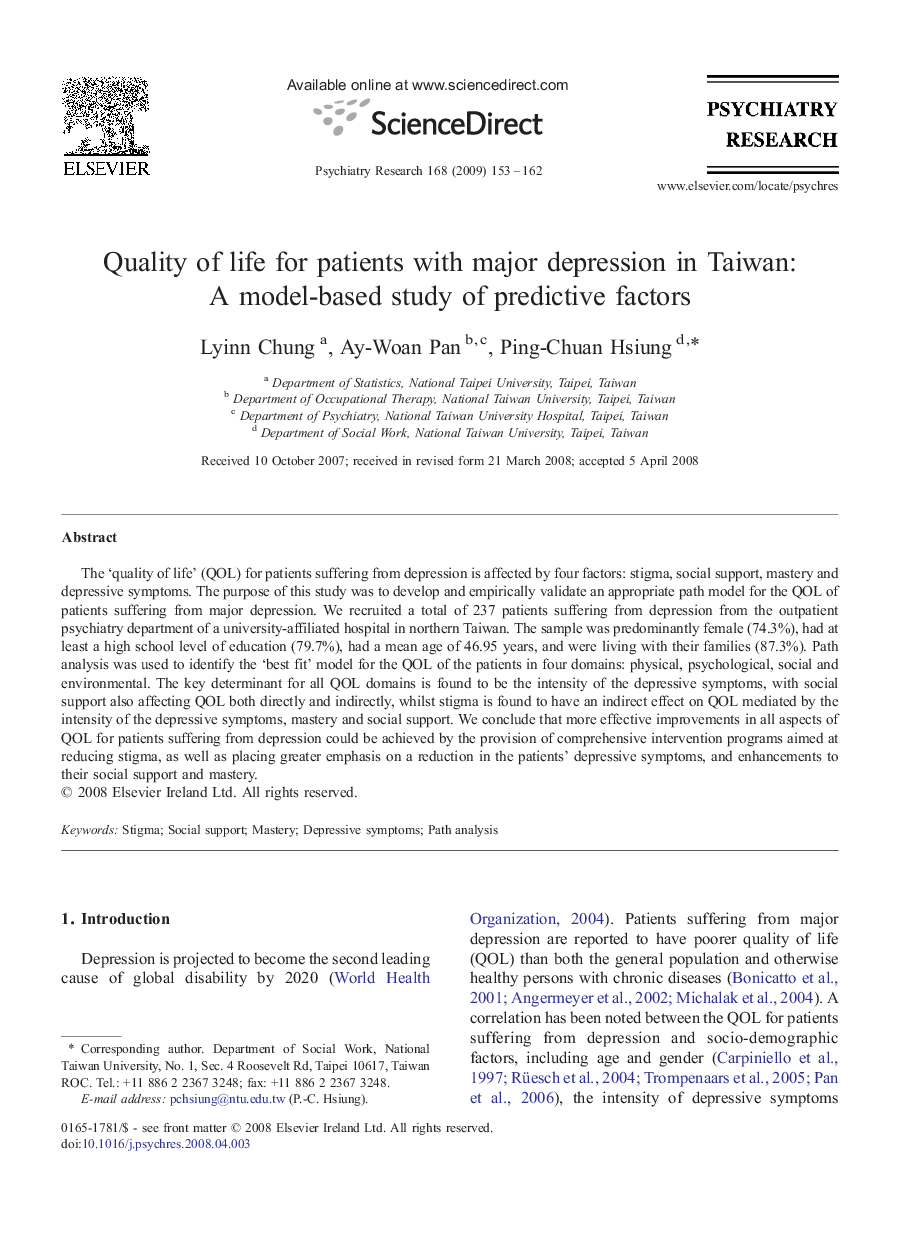| Article ID | Journal | Published Year | Pages | File Type |
|---|---|---|---|---|
| 334114 | Psychiatry Research | 2009 | 10 Pages |
The ‘quality of life’ (QOL) for patients suffering from depression is affected by four factors: stigma, social support, mastery and depressive symptoms. The purpose of this study was to develop and empirically validate an appropriate path model for the QOL of patients suffering from major depression. We recruited a total of 237 patients suffering from depression from the outpatient psychiatry department of a university-affiliated hospital in northern Taiwan. The sample was predominantly female (74.3%), had at least a high school level of education (79.7%), had a mean age of 46.95 years, and were living with their families (87.3%). Path analysis was used to identify the ‘best fit’ model for the QOL of the patients in four domains: physical, psychological, social and environmental. The key determinant for all QOL domains is found to be the intensity of the depressive symptoms, with social support also affecting QOL both directly and indirectly, whilst stigma is found to have an indirect effect on QOL mediated by the intensity of the depressive symptoms, mastery and social support. We conclude that more effective improvements in all aspects of QOL for patients suffering from depression could be achieved by the provision of comprehensive intervention programs aimed at reducing stigma, as well as placing greater emphasis on a reduction in the patients' depressive symptoms, and enhancements to their social support and mastery.
